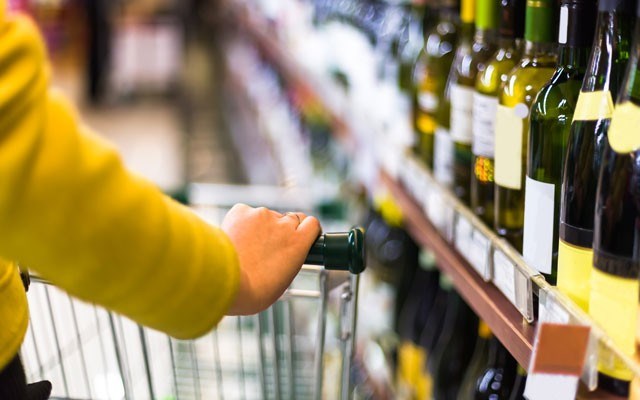The latest wave of change in provincial liquor legislation will see B.C. wines sold in grocery stores beginning this spring.
Last week's announcement reveals that existing VQA and independent wine stores will be allowed to relocate or transfer their license to grocery stores larger than 10,000 square feet provided they stock 100-per-cent made-in-B.C. wines. These licenses will be exempt from the one-kilometre rule in effect that restricts liquor stores in close proximity.
The retail locations will follow the "store-within-a-store" model with special designated registers manned by clerks with Serve It Right certifications. To be eligible, grocery stores will have to sell a minimum of 75-per-cent food products and services.
A limited number of new licences will also be made available specifically for the B.C. wine-on-shelves model. Further details on these licences will be available in the New Year.
"Our wine-on-shelves model is unique to B.C., and strikes a balance between the enhanced convenience and choice for consumers and the promise we made to protect health and public safety," read a statement from B.C. Attorney General Suzanne Anton.
Although his village location won't be eligible to sell wine, The Grocery Store owner Bob Adams said, "generally it's a good move" for the industry. "It's a little more convenient for customers where there is no liquor store really handy."
IGA Marketplace referred comment to the grocery store chain's head office, while Nesters Market manager Bruce Stewart could not be reached by deadline.
The move was good news to B.C. wine producers, like Fort Berens Estate Winery owner Rolf de Bruin, who spoke on the new regulations from Lillooet.
"We're thrilled that the B.C. government indeed is helping to promote local wine by making a number of different exceptions to allow B.C. wine in grocery stores while other wine imports, spirits and beers will not be allowed those same features," he said.
"We're certainly a winery that supports wine drinking with food and we feel that wine is just like other ingredients ... and having wine in the grocery store makes that shopping experience a lot more connected." Still, de Bruin was not without his concerns, particularly around the added challenge of distributing to major retail outlets.
"We recognize that grocery distribution is typically a very different model from our current liquor stores, with most of the liquor stores being privately owned, while you're talking about larger chains with grocery stores," he said. "So unless as an industry we can come up with a model where there is a nice selection of smaller producers as well as larger producers that are able to supply the larger stores out there, we have some fear."
This is the latest in a series of sweeping changes to B.C. liquor laws that have been revealed as part of Victoria's Liquor Policy Review that came after years of consultation.
Stores can begin stocking B.C. wines as of April 1. Wine sales at grocery stores will be limited to the same hours as other liquor retailers in the province: 9 a.m. to 11 p.m.




